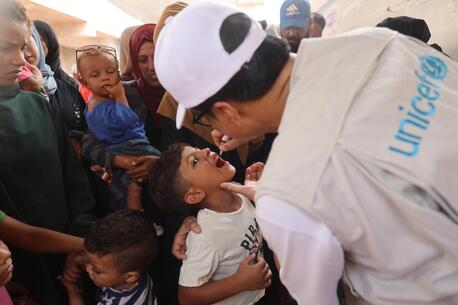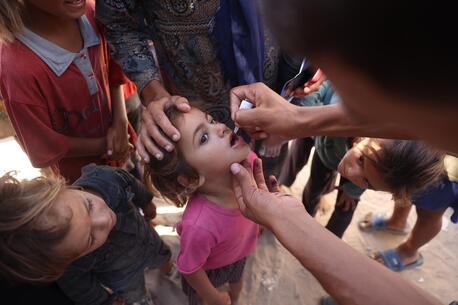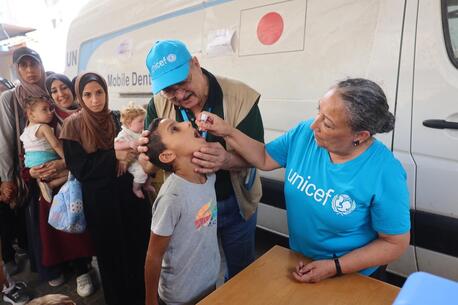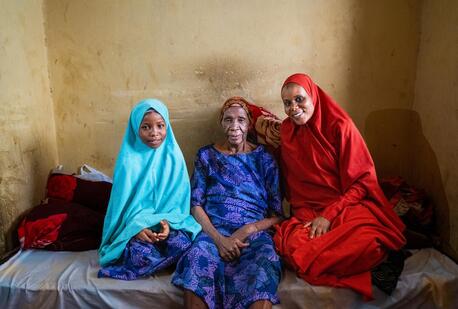
HPV Vaccination Campaign Protects Girls in Nigeria
Community health mobilizers in Nigeria combat vaccine misinformation and build trust, one family member at a time.
Routine vaccination against human papillomavirus (HPV) prevents cervical cancer
It’s midday in Katsina, Nigeria. The streets are alive with energy as the city’s daily routine hums along — the sounds of passing papalos (three-wheeled vehicles) and keke napep (tricycles) blend with nearby music and the voices of the crowds.
Moving through the bustle, a group of immunization campaigners add to the mix, calling out through hand-held megaphones. Their work is part of a national immunization campaign bringing public figures, actors and social influencers to the street alongside community mobilizers to help raise awareness about routine immunization, HPV vaccines and cervical cancer.
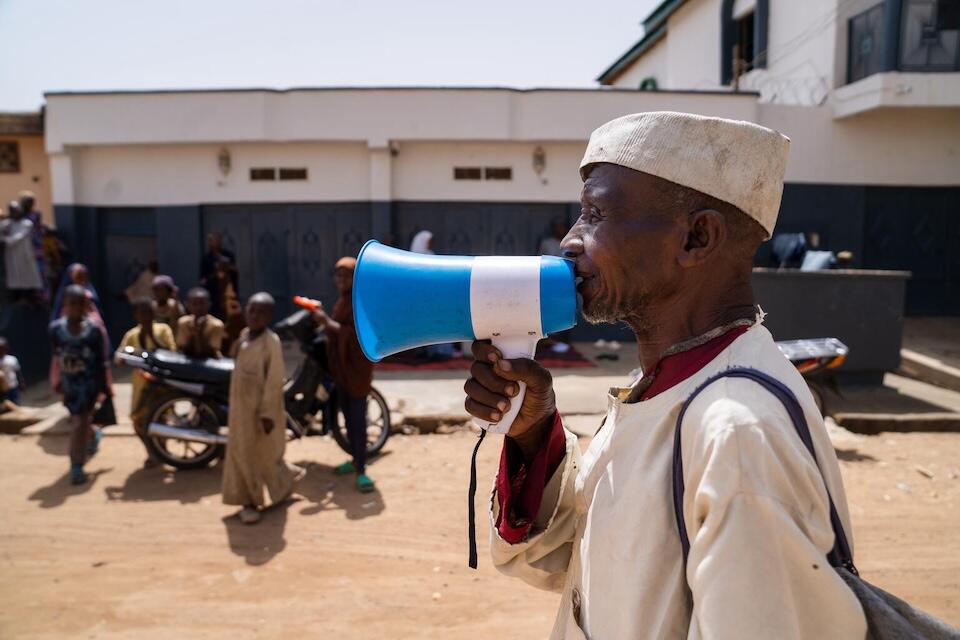
Spreading the word
Since the campaign began in October 2023, Nigeria has vaccinated over 12 million girls against HPV, reducing their chances of developing cervical cancer by up to 90 percent. It’s a remarkable accomplishment, driven in large part through community-level campaigning.
At the heart of this work are dedicated volunteers who play a critical role in engaging and mobilizing communities, reaching families with essential health information while helping to combat vaccine hesitancy.
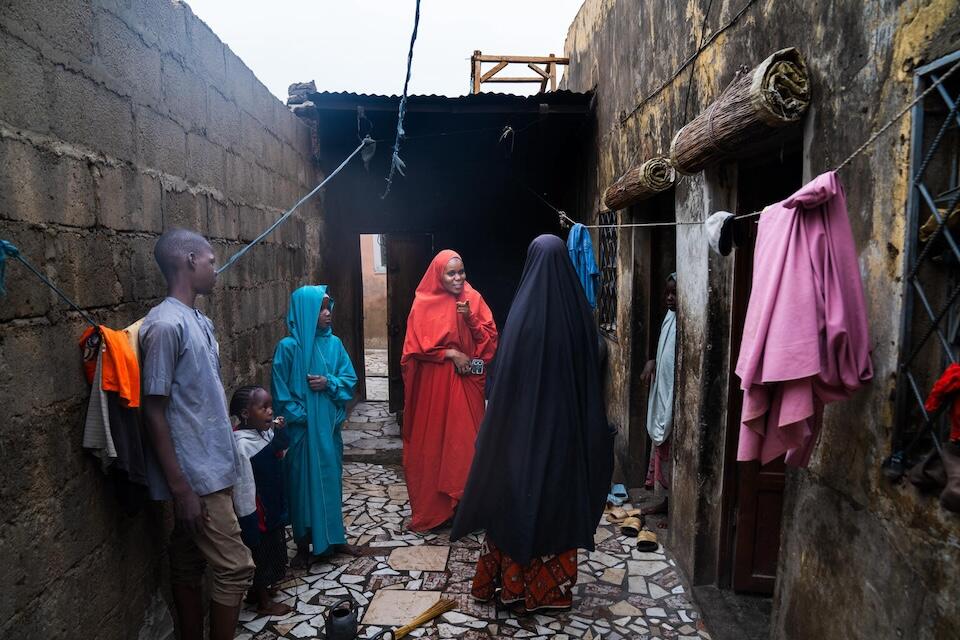
Volunteer community mobilizers promote immunization and health services
Far from the hustle and bustle, light streams through the window of Shamsiyya Abdullahi Jariri’s home. She is deep in prayer, taking a moment of reflection during a long day of work.
Shamsiyya is a volunteer community mobilizer working to protect the girls in her community by promoting immunization and health services.
Her job isn’t easy. It involves a long-term commitment to building trust, house-by-house, one family member at a time.
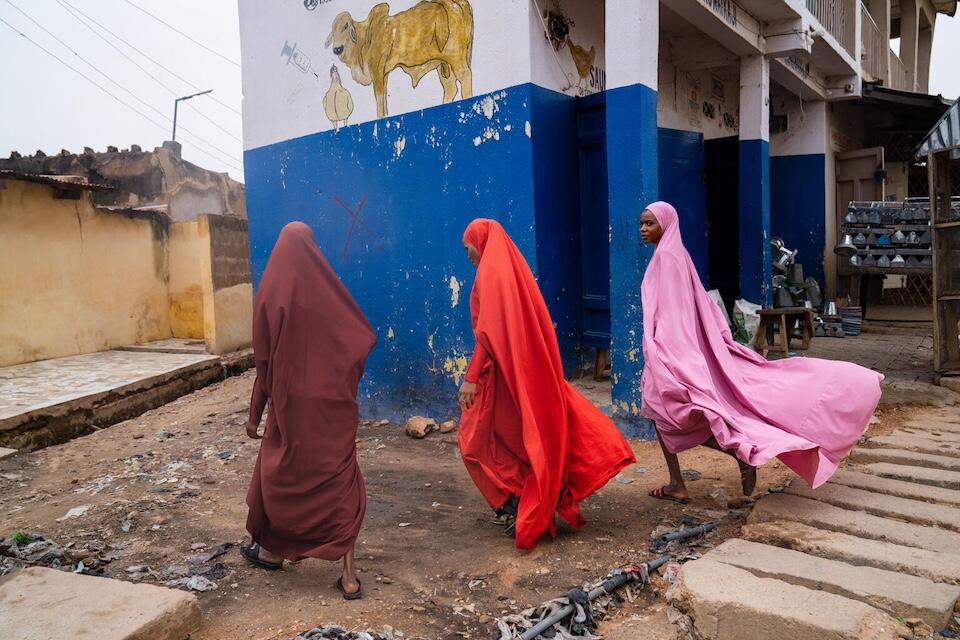
HPV vaccines save lives
Today, Shamsiyya has help. Her younger sisters, Hadiza, 25, and Safiyya, 19, tag along as she goes door to door, encouraging girls to visit the vaccination center.
Shamsiyya's work helps to spread awareness of immunization and of the HPV vaccine, which is now part of Nigeria’s routine immunization program, targeting girls ages 9 to 14. It’s crucial work that has the potential to save lives.
Cervical cancer is the second-most common cancer among Nigerian women. In 2022, more than 13,500 women were diagnosed, with 7,000 dying from the disease.
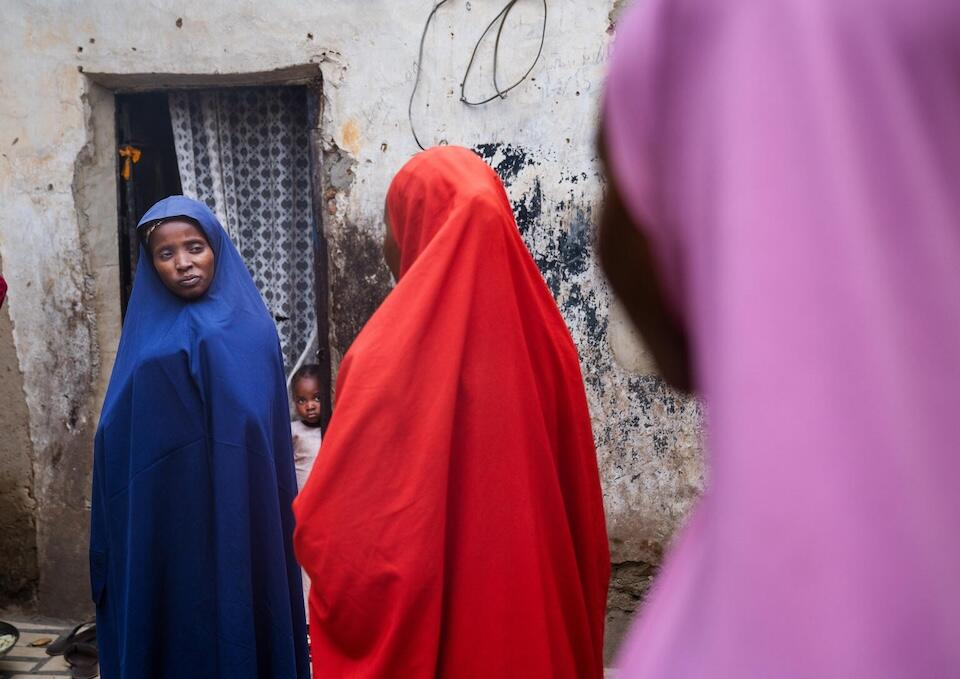
Most cases of cervical cancer are caused by HPV, a virus transmitted through sexual contact. Being vaccinated is the most effective way to avoid HPV infection and it can protect against the HPV strains that cause up to 90 percent of cervical cancer cases.
It's more of a passion than a job. — Shamsiyya, volunteer community mobilizer, Katsina, Nigeria
“I wish it applied to my age. I wish I could get the vaccination,” Shamsiyya says, reflecting on her own missed opportunity. Her work brings her deep personal satisfaction, knowing she’s giving young women a chance she never had. “At first, it was difficult, but I soon realized the importance of what I do in helping others, especially children. Now, it’s more of a passion than a job.”
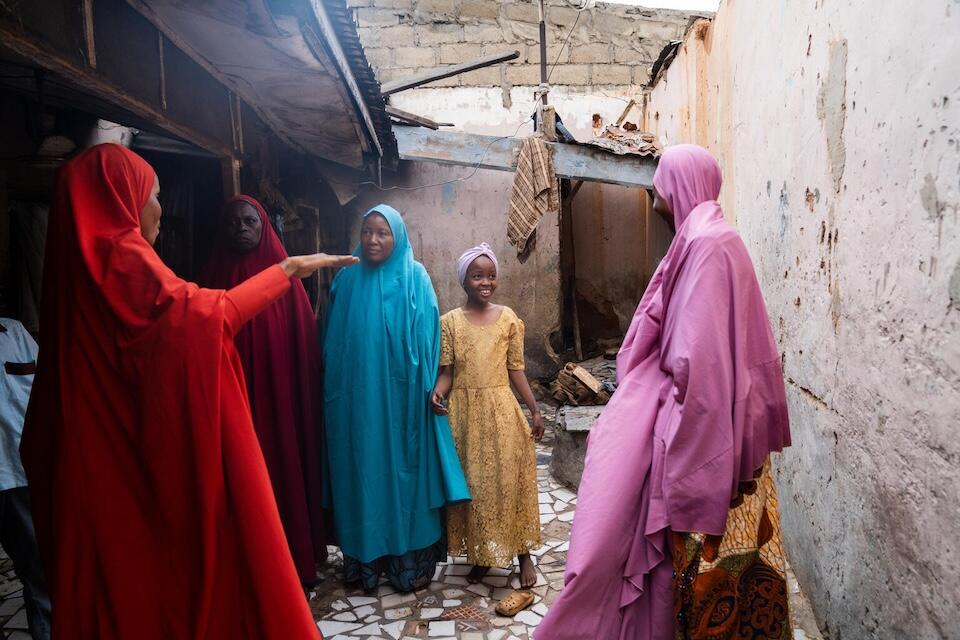
A family effort
As the day progresses, Shamsiyya faces her toughest challenge yet: convincing her grandmother, 99-year-old Fatima, to bless the vaccination of one of her great-granddaughters, 9-year-old Mariya.
The work starts with the girl’s parents, Shamsiyya’s uncle and his wife. The trust she holds as a family member helps the information she shares to feel reliable, helping to reduce their hesitancy and to improve trust in vaccination.
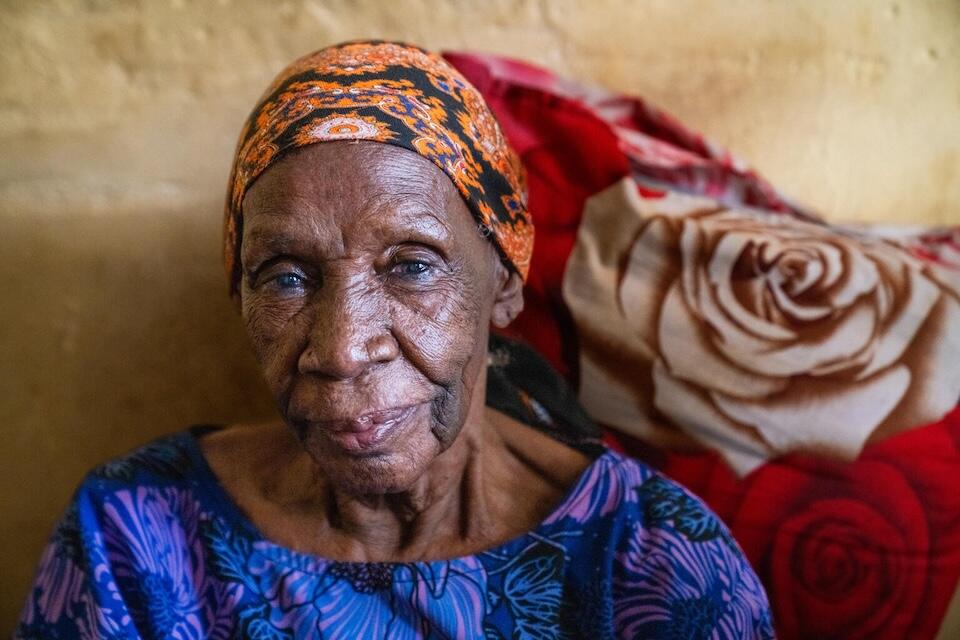
From vaccine hesitancy to trust
Fatima is a respected mentor within the family, deeply rooted in her principles. Her influence goes beyond leadership — she is the family’s moral compass.
Winning her trust requires persistent effort and delicate conversation.
Honoring her father’s memory is another factor that fuels Shamsiyya's determination. She lost her father when she was only 16. It was a devastating blow, but his early guidance and support in securing her first job helped lead her to her work in community mobilization.
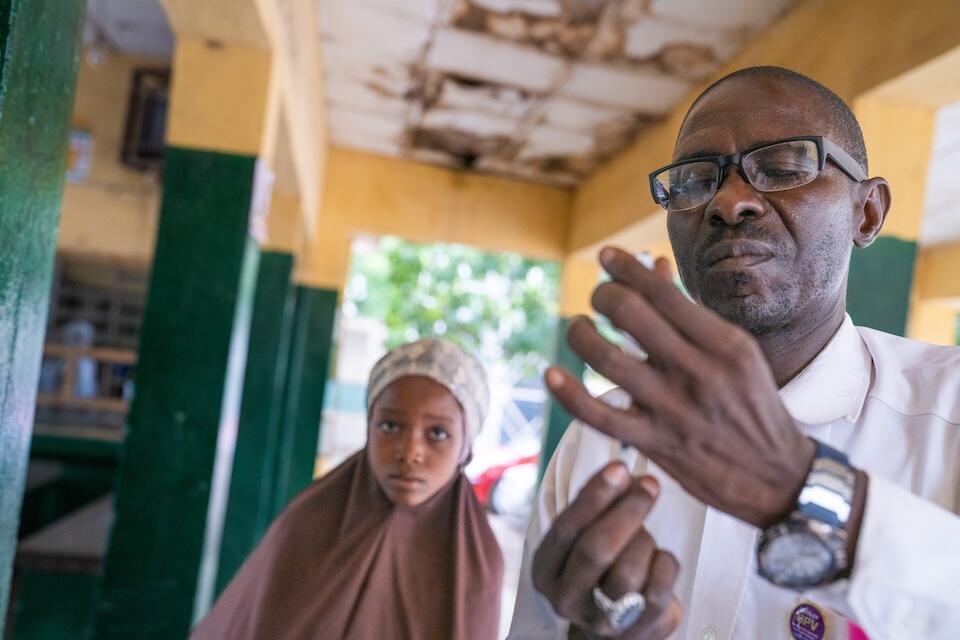
Education combats misinformation
In some parts of Nigeria, distrust of vaccines is common.
Misinformation, such as fears that the vaccine may hinder fertility or doubts about its effectiveness, makes families hesitant to have their daughters vaccinated.
Community mobilizers like Shamsiyya play a vital role in combating these misconceptions and educating communities on the vaccine’s benefits.
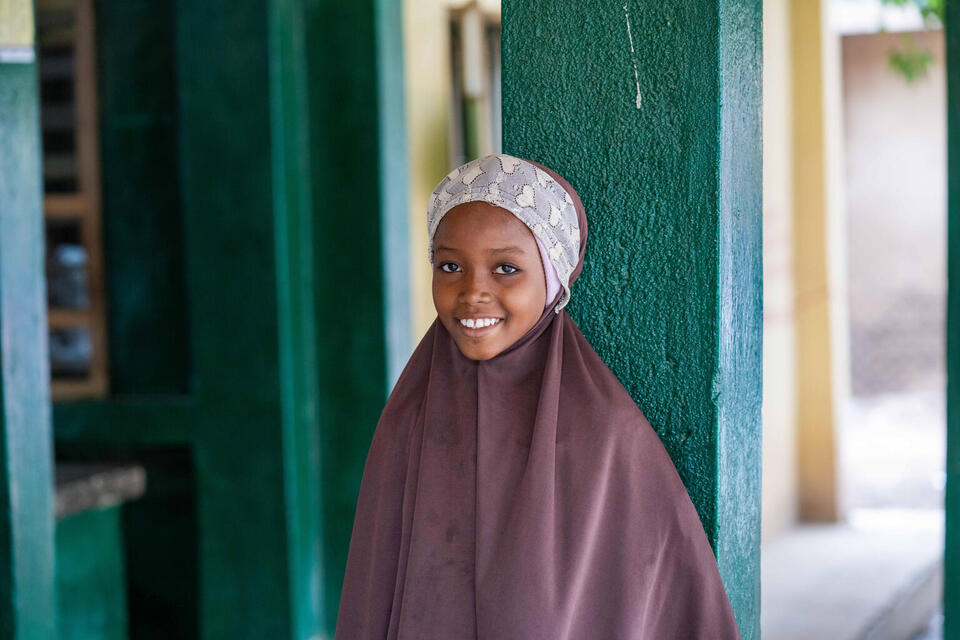
Back at Fatima’s house, Shamsiyya’s respectful yet steadfast approach begins to bear fruit through the conversations led by her mother and uncle. Their words reflect the care and persistence of Shamsiyya’s work as a community mobilizer, helping Fatima gradually overcome her fears and give her blessing.
It’s a privilege to support this campaign, knowing it will save countless girls’ lives and keep many children healthy.
“It’s a privilege to support this campaign, knowing it will save countless girls’ lives and keep many children healthy," says Shamsiyya.
Nigeria is working to integrate the HPV vaccine with HIV prevention and response services for adolescents. Known as HPV+, the project intends to give girls access to the services they need for a healthy and happy life.
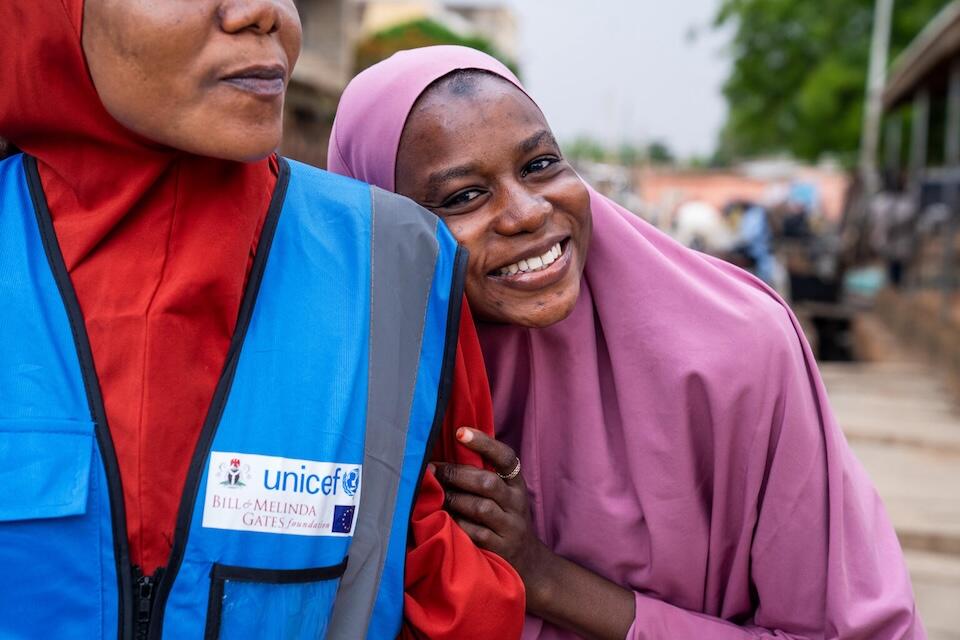
The country’s remarkable achievement of vaccinating over 12 million girls against HPV is also a testament to the efforts of volunteers like Shamsiyya. Trained and well-supported networks of community health workers, volunteers and mobilizers play an essential role in ensuring that all children have a chance to survive and thrive.
Nigeria’s national HPV immunization campaign was led by the Government of Nigeria, Ministry of Health with the support from UNICEF, the World Health Organization, Gavi, the Vaccine Alliance, the Bill & Melinda Gates Foundation and other partners.
UNICEF works nonstop to protect the health and future of the world's children. Please donate today.
This story first appeared on unicef.org
HOW TO HELP
There are many ways to make a difference
War, famine, poverty, natural disasters — threats to the world's children keep coming. But UNICEF won't stop working to keep children healthy and safe.
UNICEF works in over 190 countries and territories — more places than any other children's organization. UNICEF has the world's largest humanitarian warehouse and, when disaster strikes, can get supplies almost anywhere within 72 hours. Constantly innovating, always advocating for a better world for children, UNICEF works to ensure that every child can grow up healthy, educated, protected and respected.
Would you like to help give all children the opportunity to reach their full potential? There are many ways to get involved.



